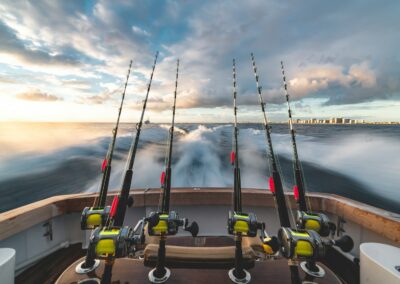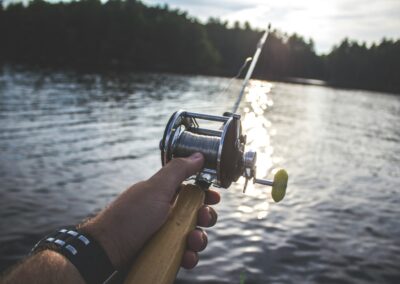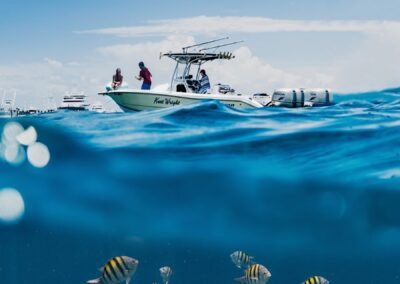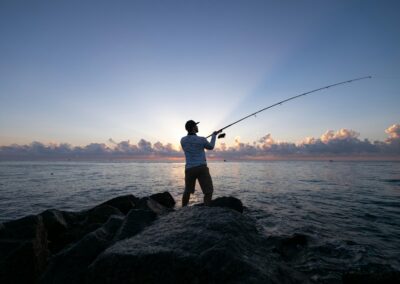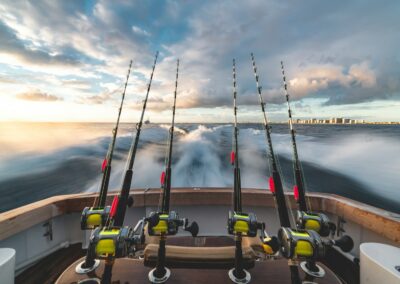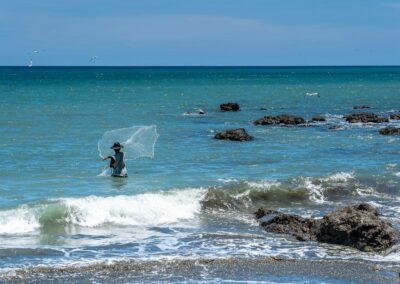Driving Change Through Certification and Ecolabeling
The Importance of Certification Programs
Certification programs play a crucial role in promoting sustainable fishing practices by ensuring that seafood is sourced responsibly. These programs provide a framework for fishers to adhere to sustainable practices, which include maintaining fish populations at healthy levels, minimizing environmental impact, and ensuring fair labor practices. In regions like Saudi Arabia and the UAE, where seafood is a significant part of the diet, certification programs help maintain the balance between demand and sustainability. By adopting these programs, businesses can demonstrate their commitment to sustainability, enhancing their reputation and gaining the trust of consumers.
Ecolabeling: Empowering Consumer Choices
Ecolabeling serves as a powerful tool in informing and influencing consumer choices. Labels such as the Marine Stewardship Council (MSC) and Aquaculture Stewardship Council (ASC) provide consumers with assurance that the seafood they purchase meets high sustainability standards. In bustling markets like Riyadh and Dubai, where consumers are increasingly aware of the environmental impact of their choices, ecolabeling can drive demand for sustainably sourced seafood. This shift not only supports sustainable fishing practices but also encourages other businesses to adopt similar measures to meet consumer expectations.
Impact on Business Success
Businesses that embrace certification and ecolabeling programs can experience significant benefits. These programs often lead to improved market access, as retailers and distributors prefer to stock certified products. Additionally, certified businesses can command higher prices for their products due to the added value of sustainability. In competitive markets like those in the UAE and Saudi Arabia, such advantages can be crucial for business success. By promoting sustainability through certification and ecolabeling, companies can differentiate themselves, attract a loyal customer base, and contribute positively to the global effort of sustainable fisheries management.
Implementing Sustainable Fishing Practices
The integration of advanced technologies such as Artificial Intelligence (AI) and Blockchain can revolutionize sustainable fishing practices. AI can analyze vast amounts of data to predict fish population movements and optimize fishing routes, ensuring that fishing efforts are efficient and sustainable. Blockchain technology can enhance transparency in the supply chain, allowing consumers to trace the journey of seafood from the ocean to their plate. In progressive cities like Riyadh and Dubai, the adoption of these technologies can lead to more sustainable fishing practices, supporting both the environment and business success.
Executive Coaching for Sustainable Practices
Executive coaching services are essential for leaders in the fishing industry to successfully implement and manage sustainable practices. Effective leadership is crucial in navigating the complexities of sustainability initiatives. In regions like Saudi Arabia and the UAE, executive coaches can provide the necessary guidance and support to industry leaders, helping them develop strategies that align with sustainability goals. By fostering a culture of sustainability, executive coaching can drive significant changes in the fishing industry, ensuring that sustainable practices are maintained and continuously improved.
Effective Communication and Stakeholder Engagement
Effective communication is vital for engaging stakeholders in sustainable fishing initiatives. Transparent and consistent communication helps build trust and support among fishers, policymakers, and consumers. In diverse markets like Dubai and Riyadh, tailored communication strategies can ensure that the benefits of sustainable fishing technologies are clearly understood. By highlighting success stories, sharing data-driven insights, and addressing concerns, leaders can foster a collaborative environment. This inclusive approach ensures that all stakeholders are aligned with sustainability goals and contribute to the effective implementation of new technologies.
Conclusion: Embracing Sustainability for Long-Term Success
The future of the fishing industry lies in the adoption of sustainable practices through certification and ecolabeling programs. In regions like Saudi Arabia, the UAE, Riyadh, and Dubai, embracing these innovations can drive significant environmental and economic benefits. By leveraging advanced technologies, executive coaching, and effective communication, the fishing industry can enhance its sustainability practices and ensure the long-term viability of marine resources. This commitment to sustainability will protect marine ecosystems, support the fishing industry, and contribute to global efforts to maintain healthy and productive oceans for future generations.
#SustainableFishing #Certification #Ecolabeling #ArtificialIntelligence #Blockchain #TheMetaverse #SaudiArabia #UAE #Riyadh #Dubai #ChangeManagement #ExecutiveCoaching #EffectiveCommunication #BusinessSuccess #ManagementConsulting #GenerativeAI #LeadershipSkills #ManagementSkills #ProjectManagement


